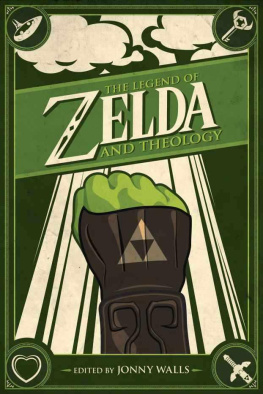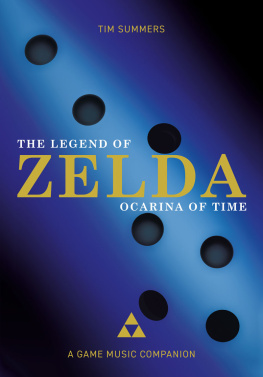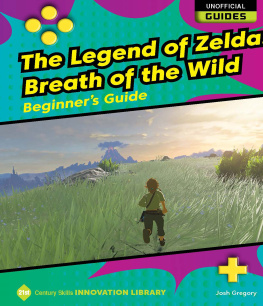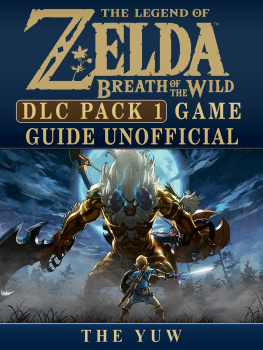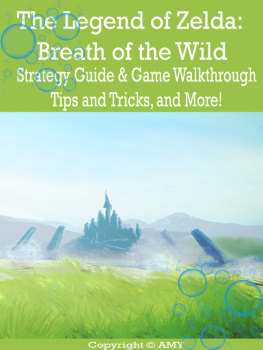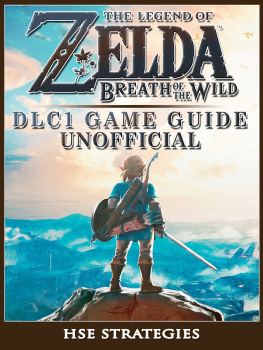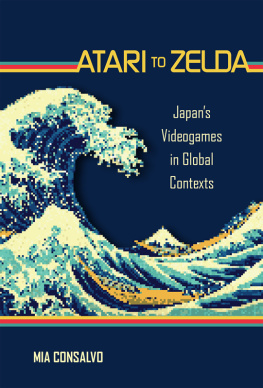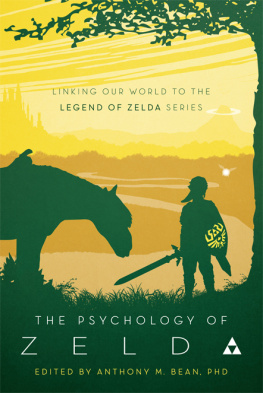Special thanks to my dad for insights, suggestions, proofreading and encouragement. Quite literally, this book could not have been done without you. Thanks to my mom for buying me my first copy of Zelda. Thanks to David Baggett, Elizabeth Glass-Turner, and Luke Van Horn for additional insights and opinions. Thanks, as always, to my wife Emily for proofreading my contributions, for valuable opinions and for being so attractive.
Introduction
Ive been a video gamer all my life. The original Nintendo Entertainment System and I were born the same year (it was released in America two years later). Over the years, I spent countless hours absorbed in and enamored with many classic game franchises in their infancy such as Mario, Star Fox, Street Fighter and Teenage Mutant Ninja Turtles , to name just a few. As a gamer, I was insatiable. Video games provided immersion, fantasy, challenge and, most importantly, fun .
Little did I know as a child, however, the untapped adventures that still lay beyond my limited gaming horizons. This was long before the Internet and I hadnt a concept of researching and educating myself on the best games available, like I do now. I simply played what I had access to and, for one reason or another, Id never been exposed firsthand to Shigeru Miyamotos, The Legend of Zelda . I didnt have a clue that a series of games so rich in theme, adventure, lively characters and puzzle solving existed.
In 1986 and 1987, The Legend of Zelda was released in Japan and America/Europe, respectively, to an unknowing generation of gamers. Woefully ignorant and unprepared for the bomb that was about to be dropped on their fledgling, isolated community, gamers could not have known the Beatles-esque impact this new game would have. To put it bluntly, everything changed.
The level of interactive adventure, exploration, immersion and storytelling The Legend of Zelda brought to television screens across the world was unheard of and it planted an integral seed in the garden that one day would grow into the diverse gaming landscape we know today. Far from stopping there, The Legend of Zelda series has continued to release top-shelf games adored by critics and fans alike.
My first real encounter with Zelda was at an early age when the series itself was relatively young. While at a friends house, I saw in his collection a Super Nintendo game called, The Legend of Zelda: A Link to the Past . I had heard of Zelda in passing, and I think I even knew that there was some protagonist named Link, so I got the pun. Upon further inspection, I saw that the face of the game cartridge was crudely altered so that the words The Legend of Zelda had been crossed out with a blue pen and the name Jesus written instead. Likely, one or both of his parents were behind this and now my poor friends game cartridge (sort of) read, Jesus: A Link to the Past . Amusing, perhaps, but this did little to pique my interest in the game.
My love for Zelda began a few years later with the release of The Legend of Zelda: The Ocarina of Time (the next installment in the series) in 1998. If The Legend of Zelda is The Beatles of video games, then this installment was Sergeant Peppers . I received the game and a Nintendo 64 unexpectedly for Christmas. I immediately began to devour this new and unprecedented treat.
The game changed my life.
Anyone who played this masterpiece when it came out will know of what I speak. Hyrule was positively massive . I could go anywhere I wanted and explore at my own pace. I wasnt just playing a game, I was living out an ancient mythology, meeting new and unfamiliar people, discovering lost lands, solving riddles, avoiding traps and wiping out evil. When I finally finished the game, I experienced true, forceful nostalgia which, quite frankly, took me by surprise. It wasnt merely that I had never felt anything like that from a video game before; it was that it kicked in before the credits even rolled. That meant this wasnt misplaced nostalgia for the period of my life connected with playing the game (although that is a powerful emotion experienced by many Zelda players). No, this was nostalgia for the game itself: for Hyrule, for Lake Hylia, for the Temples, villages, caves and forests themselves . I had no idea a game was capable of such potency and it stirred up new longings in my heart.
C.S. Lewis said, I think that all things, in their way, reflect heavenly truth, the imagination not least. Through this finely articulated point, which (to generalize) is based on the belief that all good things come from God, Lewis maintained that all great myths and religions hold elements of truth in them, and that all this partial truth finally was completed and perfected in the ultimate, historically true myth, the story of Christ.
Can you find elements of truth in your favorite books, films, music and games? Can one find truth in the works of Lennon and Cobain? How about in Tyler Durden or in the Cantina on Mos Eisley? Dante, Steinbeck or Harry Potter? I think so. This isnt to say that everything is true, but that truth appears in a lot of places we may not first suspect.

